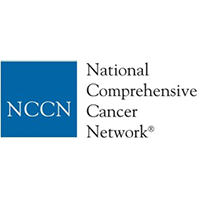
The National Comprehensive Cancer Network (NCCN) released its newest version of guidelines for hereditary breast and ovarian cancer titled: Genetic/Familial High-Risk Assessment: Breast and Ovarian, Version 1.2016.
You maybe asking, what NCCN guidelines address? According to the NCCN website, "These guidelines are the recognized standard for clinical policy in cancer care and are the most thorough and most frequently updated clinical practice guidelines available in any area of medicine." In other words, they are guidelines used by clinicians and providers to help steer their decisions in determining who should have genetic counseling and testing for hereditary cancer and what screening/prevention is best based on a person's genetic status.
The most recent Genetic/Familial High-Risk Assessment: Breast and Ovarian NCCN guidelines has a new section on multi-gene genetic testing. Multi-gene panel testing is when someone undergoes genetic testing for more than one or two genes. Mutations in different genes can cause the same type of cancer. These genes can be looked at either one at a time, or a number of genes at the same time. By testing a number of genes all at once, it may be possible to find the cause of cancer in a family more quickly.
Multi-gene panel testing can test a person for 5-50 (possibly more) genes in one test. Below are NCCN's most recent overview and recommendations for multi-gene testing:
• The recent introduction of multi-gene testing for hereditary forms of cancer has rapidly altered the clinical approach to testing at-risk patients and their families. Based on next-generation sequencing technology, these tests simultaneously analyze a set of genes that are associated with a specific family cancer phenotype or multiple phenotypes.
• Patients who have a personal or family history suggestive of a single inherited cancer syndrome are most appropriately managed by genetic testing for that specific syndrome. When more than one gene can explain an inherited cancer syndrome, than multi-gene testing, may be more efficient and/or cost-effective.
• There is also a role for multi-gene testing in individuals who have tested negative (indeterminate) for a single syndrome, but whose personal or family history remains strongly suggestive of an inherited susceptibility.
• As commercially available tests differ in the specific genes analyzed (as well as classification of variants and many other factors), choosing the specific laboratory and test panel is important.
• Multi-gene testing can include “intermediate” penetrant (moderate-risk) genes. For many of these genes, there are limited data on the degree of cancer risk and there are no clear guidelines on risk management for carriers of mutations. Not all genes included on available multi-gene tests are necessarily clinically actionable. As is the case with high-risk genes, it is possible that the risks associated with moderate-risk genes may not be entirely due to that gene alone, but may be influenced by gene/gene or gene/environment interactions. Therefore, it may be difficult to use a known mutation alone to assign risk for relatives. In many cases the information from testing for moderate penetrance genes does not change risk management compared to that based on family history alone.
• There is an increased likelihood of finding variants of unknown significance when testing for mutations in multiple genes.
• It is for these and other reasons that multi-gene testing are ideally offered in the context of professional genetic expertise for pre- and post- test counseling.
Breast and Ovarian Management Based on Genetic Test Results
With multi-gene panel testing more and more people are testing positive for genetic mutations in the BRCA1 and BRCA2 as well as many other hereditary cancer genes. There are a number of new genes that are now recognized to cause hereditary breast and ovarian cancers. Some of these genes we still don't know enough about to provide accurate screening recommendations. Other genes we know quite a bit of information about and that information will help women make decisions about breast and ovarian cancer risk. NCCN has put together a table of genes associated with hereditary breast and/or ovarian cancers and recommendations for breast and ovarian cancer screening including risk-reducing surgery.

